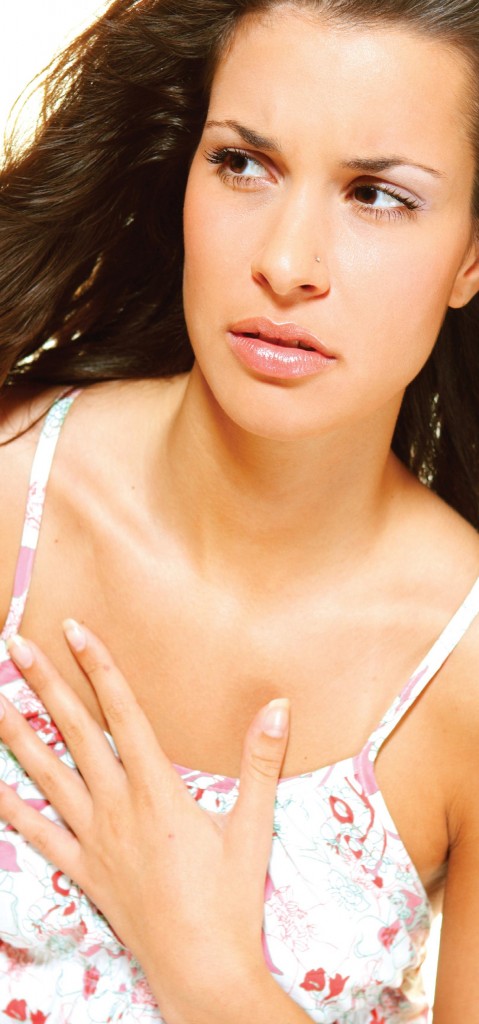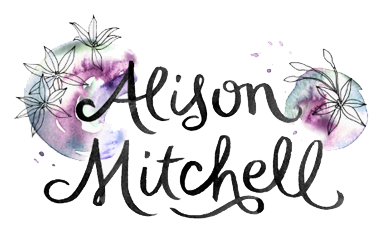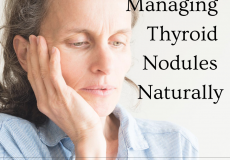Don’t Panic! It’s an anxiety epidemic!
[fb_button]
YOU ARE NOT ALONE
If you experience anxiety, you are not alone. Conditions like anxiety and depression are becoming increasingly common. In Australia and New Zealand about 20% of adults will experience a mental illness at some stage in their lives. 3% of Australian adults experience anxiety in a year (this is high!) and 55 to 60 % of these are women. The higher incidence of women with anxiety may be due to the fact that men seek treatment less frequently. The average high-schooler today has the same level of anxiety as the average psychiatric patient in the early 1950’s. We are getting more anxious every decade.
When we are presented with a stressful situation it is normal to feel some anxiety, however it is when this becomes more prolonged or severe that anxiety is considered to be a ‘disorder’. Anyone who has experienced anxiety knows that you can’t just “stop worrying” or “snap out of it” – if it was that simple then it wouldn’t be such a problem. Thankfully, there is much that can be done. One of the first steps to overcoming anxiety is understanding that it’s not ‘all in your head’, but learning about the condition, and then taking steps to get better by seeking help.
WHY?
 There are several types of anxiety, such as generalised anxiety disorder (GAD), panic attacks, obsessive compulsive disorders, post traumatic stress disorders and phobias. These can be caused by slightly processes in the body, and will give different symptoms as well.
There are several types of anxiety, such as generalised anxiety disorder (GAD), panic attacks, obsessive compulsive disorders, post traumatic stress disorders and phobias. These can be caused by slightly processes in the body, and will give different symptoms as well.
Given the increased pressure we have on ourselves with work, finance, family, relationships and not to mention all the scary things the media warns us about, it’s no wonder that anxiety is so common. Support networks (groups of people that we can turn to who listen to and understanding our concerns) used to exist in greater strengths, however with everyone’s busy lives and the impact of technology on social interactions we are no longer able to ‘debrief’ as we once were, and so our stresses are exaggerated and not dealt with properly.
There are many different causes and triggers of anxiety (so many that it could fill a book) so I will only list some of them.
 Neurotransmitters are chemicals which allow our neurons to communicate with the rest of our body by an electrical signal. If there is an imbalance in these, we can get a problem with mood. Serotonin, Glutamate, GABA and Dopamine are most often involved with anxiety. The way that we make neurotransmitters is like a factory line – we start with protein and there are several steps along the way where certain vitamins and minerals add bits and pieces to get the final product. If something goes wr0ng with that factory line, you get neurotransmitter imbalances.
Neurotransmitters are chemicals which allow our neurons to communicate with the rest of our body by an electrical signal. If there is an imbalance in these, we can get a problem with mood. Serotonin, Glutamate, GABA and Dopamine are most often involved with anxiety. The way that we make neurotransmitters is like a factory line – we start with protein and there are several steps along the way where certain vitamins and minerals add bits and pieces to get the final product. If something goes wr0ng with that factory line, you get neurotransmitter imbalances.- Emotional triggers. This doesn’t really need explaining.
- Hormonal imbalances. Many women (and their partners) are well aware of the affects of PMS on mood. Anxiety and depression are very common around ‘that time of the month’.
- Blood sugar level fluctuations. When your blood sugar levels drop it can cause feelings of anxiety, so eating a low GI diet is important to prevent anxiety.
- Diet : deficiencies. What you eat can affect your mood. A lot. There are a few vitamins and minerals in particular that have very important roles in making our neurotransmitters (think of the factory line mentioned before), and if you are missing one or any of these then the process either doesn’t occur, or goes in the wrong direction.
- Diet : triggers. Food intolerances, caffeine or other stimulants, preservatives and additives can trigger anxiety via a complicated chemical process which ultimately – you guess it – disrupts that neurtransmitter factory line.
- Digestive problems. Did you know we make most of our neurotransmitters in our digestive system? It makes sense then that digestive problems can upset the subtle balance of these neurotransmitters, affecting your mood. Most people with IBS have probably noticed this connection for themselves – have a stressful day, and your gut suffers (and vice versa). Liver issues can also be connected with anxiety, potentially via their effect on intestinal health and bilirubin toxicity, even though some conditions such as Gilbert’s syndrome are frequently labelled as being symptom free.
- Toxicity (e.g. heavy metals)
- Inflammation. A lot of mental health conditions are now being linked to other auto-immune/inflammatory conditions, and depression itself is considered to be an inflammatory condition.
WHAT CAN I DO?
Seek help!
According to a research paper from the Lancet published in 2006, despite the great number of pharmacological options less than half of the patients suffering from panic disorder experience a full and sustained remission. What should we take from this disappointing fact?
We need to realise that what causes anxiety is not the same for everyone. Treatment of anxiety and other mental health conditions needs to be holistic. By this I mean that all the factors that combine to cause anxiety need to be addressed, and that treatment should incorporate different methods to do this, such as counselling, nutrition, herbal medicine, massage and acupuncture to relieve the symptoms of anxiety and address the underlying causes.
 Complementary medicine can do marvellous things for anxiety, however if your anxiety is severely debilitating then medication may be necessary in the short term. It is advisable not to self prescribe as anxiety and depression require specific doses and quality of herbs which are difficult to find in the retail range, and there are interactions between some medications and herbs which should be avoided.
Complementary medicine can do marvellous things for anxiety, however if your anxiety is severely debilitating then medication may be necessary in the short term. It is advisable not to self prescribe as anxiety and depression require specific doses and quality of herbs which are difficult to find in the retail range, and there are interactions between some medications and herbs which should be avoided.
There are many different treatment options available giving you plenty of choice and whichever one you choose it is most likely you will get some relief – choose a therapy that you have an affinity with and combine it with a cognitive therapy (e.g. counselling, hypnotherapy or meditation) and you’re on the right path.
Don’t lose hope – if you seek help then you can regain control over your anxiety.
Some tips to help you along your way
Meditation is one of the oldest and most effective ways of managing anxiety and mood disorders. Research has shown that people who take conventional medications for anxiety who also meditate have a better result. This is a good practice to incorporate into your daily ritual to help manage anxiety.
Breathing techniques are a very important part of managing anxiety. A lot of people don’t breathe correctly, which is usually a habit we don’t even realize we have. Some of us are chronically bad breathers as a result of growing up with breathing conditions such as asthma or sinus disorders. This incorrect way of breathing can worsen anxiety, often leading to hyperventilation.
Your diet can have a strong impact on anxiety, both positively and negatively. To begin with, simply reduce the foods that can trigger anxiety (see above) and try to increase your intake of nourishing foods like good fats, vegetables and whole (intact and unprocessed) grains – preferably organic. For further guidance consult a naturopath or nutritionist.
Exercise. Walking, jogging, swimming, pilates, yoga. Get moving – it does wonders for burning up your stress hormones and clearing your thoughts.
Keep Rescue Remedy or Emergency Essence handy to use if you have an acute episode.
Mindfulness exercises are a great technique to ‘unclutter’ your mind. There are plenty of different techniques available (just do an internet search) but the core of the technique is that you are concentrating solely on what is happening at that moment in time. Mindful eating is a great habit to get into – it improves stress as well as digestion.
Works Cited
- Brito, D. B. (2012). Bilirubin Toxicity. Retrieved from http://www.ff.ul.pt/FCT/RECI/BIM-MEC/0188/2012/1.pdf
- Charles L. Raison, M., Christopher A. Lowry, P., & Graham A. W. Rook, B. M. (2010). Inflammation, Sanitation, and ConsternationLoss of Contact With Coevolved, Tolerogenic Microorganisms and the Pathophysiology and Treatment of Major Depression. Arch Gen Psychiatry, 67(12), 1211-1224.
- Hechtman, L. (2011). Clinical Naturopathic Medicine. Churchill Livingstone Australia.
- Leahy, R. H. (2008, April 30). Anxiety: How Big a problem is it? (Psychology Today) Retrieved April 21, 2012, from http://www.china-consult.com.au/2010/09/17/anxiety-how-big-a-problem-is-it/
- Mindfulness in Everyday Life. (2007, January). (Black Dog Institute) Retrieved April 21, 2012, from http://www.blackdoginstitute.org.au/docs/10.MindfulnessinEverydayLife.pdf
- Overeview of mental illness in Australia. (n.d.). Retrieved from http://www.responseability.org/site/index.cfm?display= 134563
- Roy-Byrne, P. P., Craske, M. G., & Stein, M. B. (2006). Panic Disorder. Lancet, 1023-1032.
- Satish A. Eraly, M. P., Caroline M. Nievergelt, P., Adam X. Maihofer, M., Donald A. Barkauskas, P., Nilima Biswas, P., Agorastos Agorastos, M., . . . Team, f. t. (2014). Assessment of Plasma C-Reactive Protein as a Biomarker of Posttraumatic Stress Disorder Risk . JAMA Psychiatry, 71(4), 423-431. Retrieved from http://archpsyc.jamanetwork.com/article.aspx?articleid=1833091&resultClick=3
[fb_button]










